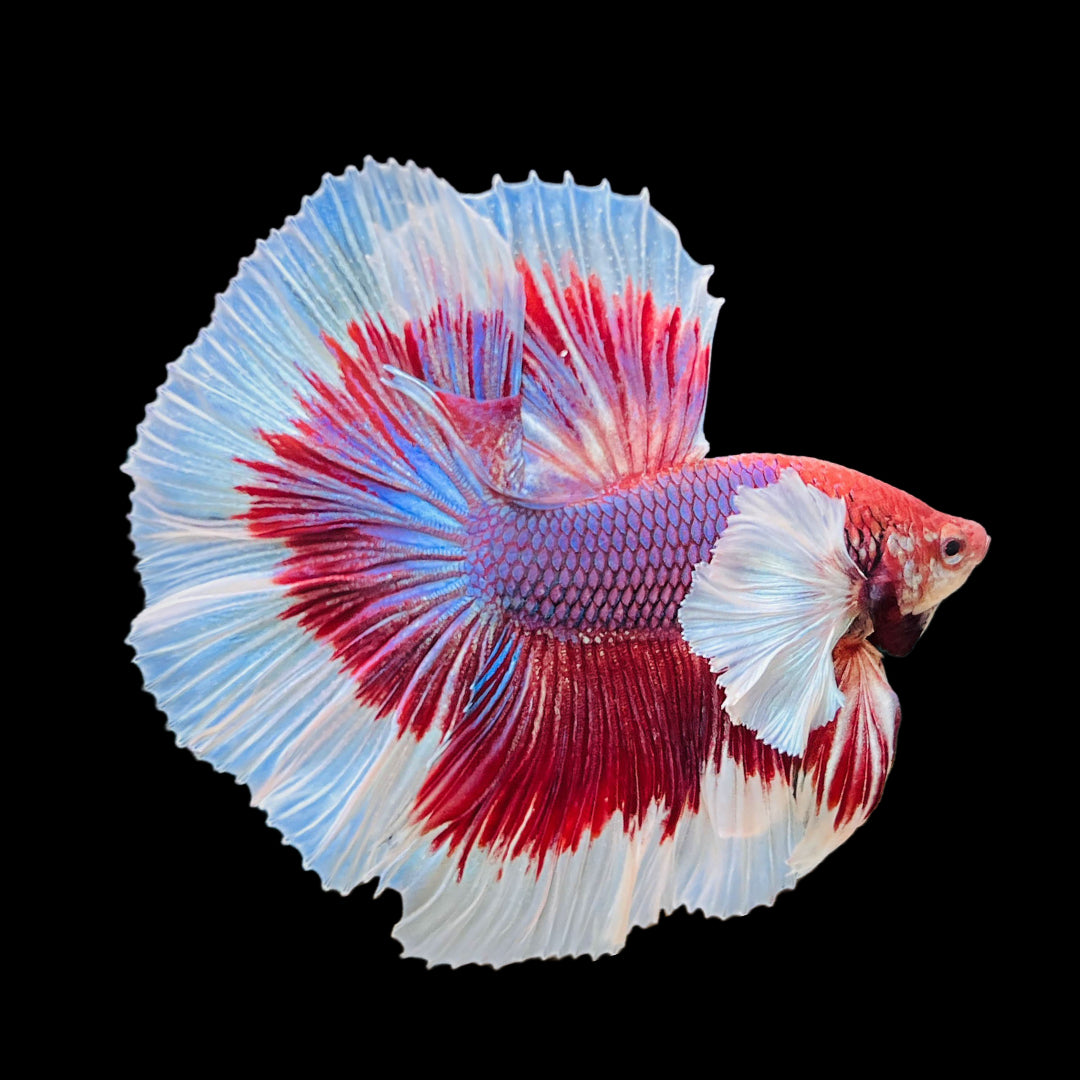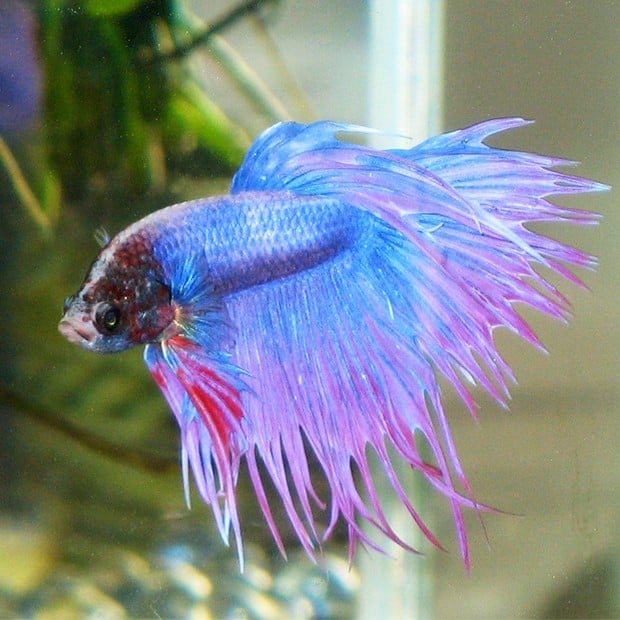All About Betta Fish: Recognizing Their Distinct Demands, Habits, and the Finest Practices for Optimal Care
Recognizing the distinct demands and behaviors of Betta fish is crucial for any aquarist wanting to supply optimal care. These exciting creatures, native to the cozy waters of Southeast Asia, exhibit unique territorial propensities and require particular ecological conditions to flourish. From picking the right tank size to acknowledging possible health problems, numerous variables significantly influence their wellness. As we discover these components further, the ramifications for both newbie and seasoned fish keepers come to be significantly evident, increasing concerns concerning just how best to suit these exceptional fish in our homes.
Betta Fish Overview
Although often appreciated for their vivid shades and streaming fins, Betta fish, clinically understood as Betta splendens, are complicated creatures that require specific like grow. Stemming from Southeast Asia, these freshwater fish are recognized for their territorial nature and one-of-a-kind actions. Betta fish show sexual dimorphism, with males displaying extra dazzling colors and longer fins than females.
Their aggressive propensities, specifically amongst men, require cautious consideration when real estate them. Bettas are typically kept in single-specimen tanks to stop territorial disputes. Nonetheless, they can exist together peacefully with particular suitable species in bigger community containers, offered the environment fulfills their needs.

To ensure optimal care, aquarists should comprehend their one-of-a-kind behavior attributes, dietary needs, and habitat requirements. betta fish. With proper attention, Betta fish can exhibit their vibrant personalities and thrive in a well-kept aquarium setting
Natural Habitat and Setting
Betta fish grow in a varied variety of natural environments, largely located in the shallow waters of Southeast Asia, including rice paddies, swamps, and slow-moving streams. These settings are identified by warm temperatures, typically in between 75 ° F and 82 ° F(24 ° C and 28 ° C ), and a pH level ranging from 6.5 to 7.5, which is ideal for their wellness and wellness.
In their natural environments, Betta fish are accustomed to thick plants, offering both sanctuary and breeding premises. The existence of plants such as floating water lilies and thick yards not only offers defense from predators yet likewise contributes to the oxygenation of the water, which is essential for their respiratory system needs. In addition, these atmospheres frequently have locations of still water, allowing Betta fish to show their natural behaviors such as bubble nesting.
Comprehending the all-natural environment of Betta fish is vital for aquarium lovers. Replicating these conditions-- via water temperature, pH equilibrium, and the inclusion of online plants-- can significantly enhance the total health and durability of these exciting fish, ensuring they grow in a home aquarium setting.
Social Actions and Communications
Comprehending the social actions and communications of Betta fish is essential for successful aquarium management. Betta fish, or Siamese fighting fish, are understood for their distinct behavioral qualities, defined largely by territoriality and aggressiveness.
Alternatively, women Bettas show much less aggressive actions and can coexist in teams, referred to as sororities, if presented effectively. Nonetheless, it is crucial to check their communications very closely, as power structure and supremacy can cause disputes. Understanding the dynamics within a Betta area is crucial; establishing hiding spots and ensuring enough room can alleviate hostility.
In addition, Betta fish might likewise display curiosity and social actions towards other varieties. While they can exist together with certain non-aggressive container companions, it is vital to choose suitable species to stay clear of anxiety and hostility. Overall, identifying these social interactions is essential to fostering an unified aquarium setting for Betta fish.
Vital Treatment Guidelines
Providing appropriate treatment for Betta fish is crucial to their health and wellness and health. Regular water modifications-- about 25% weekly-- help preserve water top quality.
Betta fish require an appropriate storage tank dimension; a minimum of 5 gallons is recommended to offer appropriate room for swimming and hiding. Include decorations and plants to produce a revitalizing setting, but avoid sharp items that might damage their fragile fins.

Finally, guarantee the tank site link is equipped with a filter to maintain the water clean, but make use of a mild filter to stay clear of solid currents that can emphasize the fish. By complying with these important care standards, proprietors can promote a healthy and vibrant Betta fish.
Common Wellness Issues and Solutions
In the treatment of Betta fish, awareness of usual health and wellness issues their explanation is essential for keeping their wellness. One prevalent problem is fin rot, typically triggered by inadequate water quality or microbial infection. Symptoms consist of frayed or blemished fins. To treat fin rot, boost water conditions and take into consideration utilizing a broad-spectrum antibiotic.
One more common condition is ich, a parasitical infection characterized by white areas on the fish's body (betta fish). Therapy includes raising water temperature and adding fish tank salt to the tank, as this can assist remove the parasite
Swim bladder condition is additionally frequently observed, causing buoyancy troubles. This condition might emerge from overfeeding or irregular bowel movements. A fasting period of 24-48 hours, complied with by a diet regimen of blanched peas, can offer alleviation.
Lastly, bettas may struggle with velour disease, suggested by a gold dust-like look on their skin. Therapy generally needs drug specifically developed for exterior parasites, together with boosted tank hygiene.
Normal surveillance of water parameters, preserving a clean atmosphere, and supplying a well site link balanced diet are important safety nets. By dealing with these health problems immediately, Betta fish can lead much healthier, a lot more lively lives.
Verdict
In recap, effective betta fish treatment needs an understanding of their special requirements and habits. Supplying an appropriate atmosphere, including suitable tank size and water problems, is crucial for their health. In addition, identifying their territorial nature and making sure appropriate hiding spots can prevent aggression. Normal surveillance of health and wellness and water high quality, together with a balanced diet regimen, adds to the durability and vibrancy of betta fish. Complying with these standards will certainly promote a flourishing aquatic ecosystem for these exciting animals.
Comments on “Understanding Betta Fish Behavior: What Every Owner Should Know”